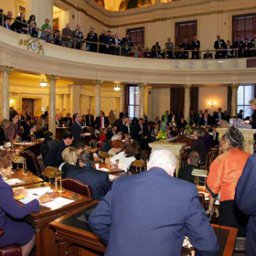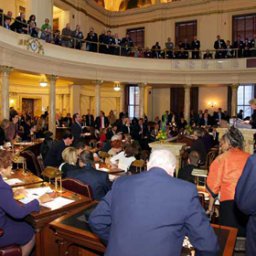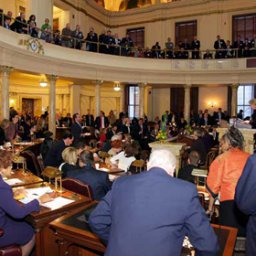
Allows Mix of Voter Petitions and Municipal Governing Body Resolutions
TRENTON – Legislation sponsored by Senators Bob Gordon (D-Bergen) and Jim Beach (D-Camden) that would make it easier for municipalities to study the possibility of merging was signed into law today.
“Sharing services and consolidation have become necessary in the current economic climate. They can offer significant savings to taxpayers and still ensure efficient services. That is why we need to make the process of implementing shared service agreements and consolidations easier, not harder. This legislation will do just that,” said Gordon.
This bill stems from a grassroots attempt to gain approval to form a study commission to examine whether Merchantville and Cherry Hill can consolidate municipal services. Earlier this year, Merchantville and Cherry Hill undertook an effort to form a Municipal Consolidation Study Commission. In Merchantville, the residents collected signatures and sent a petition to the Local Finance Board, an affiliate of the Department of Community Affairs. In Cherry Hill, the town council submitted a resolution to undertake a consolidation study. According to the Board, however, the law required the same method of application from each community. Consequently, the applications were rejected.
“There was no reason for a law to be on the books that prevented municipalities from, at the very least, examining ways to consolidate. By allowing a mixture of resident petitions and governing body resolutions, we are headed in the right direction. Communities that want to start this kind of conversation should not be told by lawmakers that they can’t,” said Beach.
The legislation, S2465, will permit municipalities seeking to petition the Local Finance Board for the formation of a Municipal Consolidation Study Commission to obtain board approval either through voter petition or application by a municipal governing body, in any combination. Under previous law, the Board could accept an application only if each of the municipalities used the same procedure as the other. In other words, all towns had to submit petitions from their residents, or, they had to submit resolutions from their town councils or committees. There could not be a mixing of the two.
Under the new law, if each municipality submits its study commission application through its governing body, any consolidation plan ultimately proposed would be required to be approved by voter referendum in each of the municipalities.




